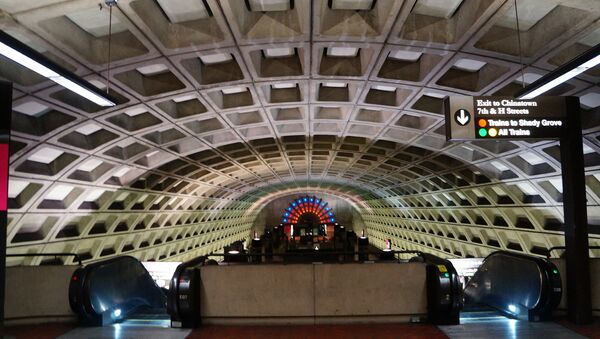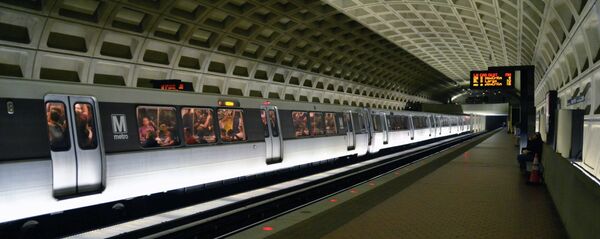On Tuesday, the Washington Metropolitan Area Transit Authority (WMATA) made a surprise announcement that the entire DC metro would shut down for at least 24 hours. Following a fire on Monday, officials wanted to inspect the networks’ remaining 600 primary electrical cables.
Wednesday afternoon, authorities announced that they had identified 26 cables at risk, and that emergency repairs would be completed by Thursday morning.
The question remains: how does the public transit system of the capital of the wealthiest and most powerful nation on Earth become an unreliable laughingstock? An in-depth look by the Washingtonian last December offers some revealing insights.
Poor Training
In interviewing former employees who went through WMATA’s training process, the paper found that classrooms relied on old textbooks that were out of date and riddled with errors, some glaringly obvious.
"I’ll be honest with you – I studied harder for fast-food jobs and waiter jobs when I was in college than I did for their program," Kenneth Colvin, a former employee, said. "Their testing program is a joke."
— Steve Burns (@StvBurns) March 16, 2016
Those who passed did not rely on written protocols, even when new systems were installed.
"Most veteran [controllers] prefer to run the Metrorail system largely based on their past experiences and the information 'in their heads,'" reads an investigative report by the US Federal Transit Authority (FTA).
A Toxic Workplace
The FTA report also found widespread issues within the hierarchical structure of WMATA. With WMATA largely understaffed, many operators used overtime pay to augment their salaries. These employees resented new hires who interfered with these financial benefits.
— Alexis Levinson (@alexis_levinson) March 16, 2016
"You’d have people in there making almost double their salary in overtime," a former employee told the Washingtonian.
"It looks like a CEO’s parking lot," said another, describing the number of Mercedes and BMWs in the employee parking lot.
There was also infighting among train operators and traffic controllers. Employees described a widespread policy of repeat "train breakers," in which operators who were offended by controllers would intentionally sabotage the train, forcing controllers to go through a lengthy repair process.
— Alex Bruns (@ABBruns) March 15, 2016
"[Operators] will do something like this because they think, 'Well, you screwed me, I screw you,'" a former employee said, referring to operators who deliberately dumped air out of train brake lines. One driver, in particular, "was almost guaranteed to break her train if she didn’t like the way you talked to her."
Because WMATA employees were in such short supply, this behavior was largely tolerated.
Rushed Construction
Many of the DC metro’s woes can be traced to its origin. Because train lines had to be built across not only DC, but also into neighboring Maryland and Virginia, a power-sharing compact was drafted to divvy up maintenance responsibilities. The federal government was later added to the compact, meaning that the metro system is essentially managed simultaneously by four separate bodies, each with their own interests.
These divisions cause funding problems. As each entity skimps on its share of maintenance costs, WMATA relies on rider fares much more than other metro systems, creating artificially high transit costs for metro users.
— ClotureClub.com (@ClotureClub) March 15, 2016
The compact was hastily written, as proponents were in a rush to build the metro system before the project was killed by highway lobbyists.
This urgency – and lack of funds – forced engineers to design tunnels with only one track going in each direction. By comparison, metro systems in New York and Chicago were built with four tracks, to allow for repairs. DC’s metro is forced to single-track when repairs are needed, causing massive delays, and discouraging supervisors from making those repairs to begin with.
Ridership in Decline
DC area residents have repeatedly expressed frustrations with the reliability and high cost of the metro. Ridership is at an all-time low, and it may only be a matter of time before constant mismanagement makes the trains unbearable.



